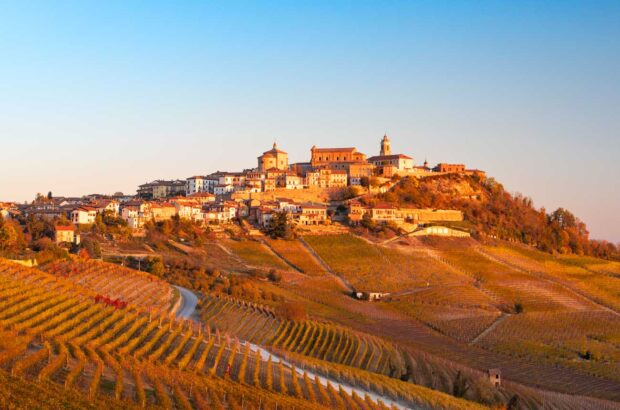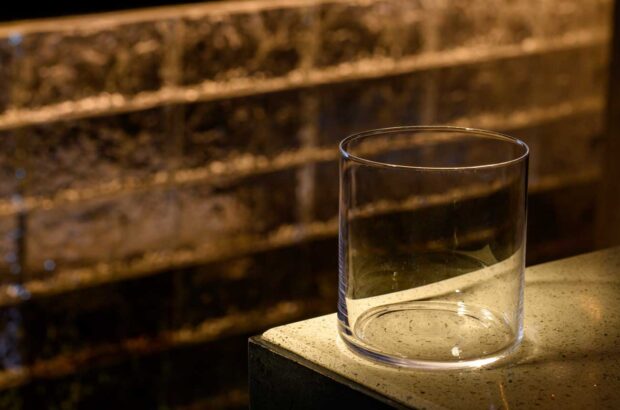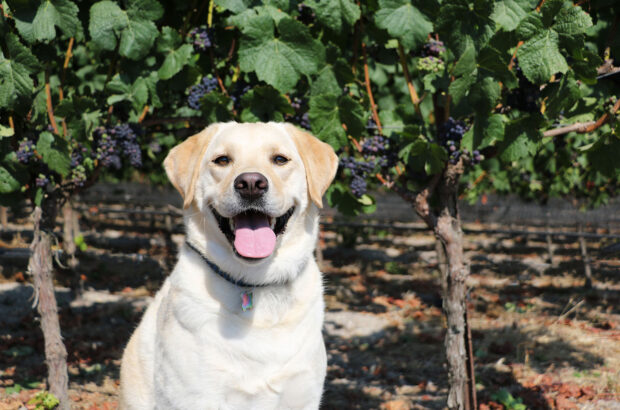Stellenbosch is in many ways the nerve centre of South African wine. The country’s largest and second-oldest wine region, it’s home to Stellenbosch University, where many of the country’s winemakers honed their craft. It’s the birthplace of the country’s signature Pinotage, where the country’s first wine route was established in the 1970s – and where many of South Africa’s most revered wines are made.
So it came as no great surprise when, after crunching the numbers following Decanter World Wine Awards (DWWA) 2024 judging in May, that a mini-galaxy of stellar performances for the region’s producers was revealed. In addition to 77 Silver and 17 Gold medals there were two Best in Show awards as well as a standout Value Gold for an unusual (in this part of the world, at least) grape variety.
Just 50 wines were awarded Best in Show this year, accounting for 0.28% of the total wines tasted. The two Stellenbosch wines (both 97 points) were of very different styles: one a red Bordeaux blend, the other a varietal Chardonnay, from two neighbouring wards – Simonsberg-Stellenbosch and Banghoek.
So, how important is terroir? ‘It’s crucial,’ said Regional Chair for South Africa, Fiona McDonald.
‘We’re seeing producers become very focussed on only making wines that are suited to their particular conditions and locale. Where two or three decades ago they were trying to be all things to all people, they are now sticking to their knitting – so to speak! And that’s why there’s a growing recognition for the fact that Stellenbosch and Cabernet Sauvignon work well. The same is true for Chardonnay. South Africa has form for both.’
The Cabernet connection
Stellenbosch’s reputation is based largely (along with Pinotage) on Cabernet Sauvignon and Bordeaux blends. About 20% of Stellenbosch’s vineyard area is planted to Cabernet Sauvignon and about 12% to Merlot, and the region is frequently compared to Napa and Bordeaux – so it’s fitting that Best in Show winner Tokara, Reserve Collection Cabernet Sauvignon, Stellenbosch 2021 is a Cab-dominant blend: 90% Cabernet Sauvignon with 7% Petit Verdot and the remainder Malbec.
‘Splendidly deep in colour and has sophisticated aromas that take the drinker well beyond blackcurrant towards plum, bramble and damson, with sumptuous incense spices lending a little exotic lustre,’ is how the panel described the Tokara blend, noting that, ‘the winemaking here puts the emphasis on drinkability with detail.’
Stuart Botha, who joined Tokara as winemaker in 2017 at the relatively young age of 32, describes Cabernet as ‘our focus red variety’. It comprises 65% of Tokara’s vineyard plantings. ‘Tokara is placed on the mid-slope of the Simonsberg mountain, the most important piece of topography in Stellenbosch,’ he said.
‘Here, on 400-million-year-old granitic soils, we planted various clone/rootstock combinations of Cabernet Sauvignon.’ The aim, Botha said, is ‘the expression of Cabernet that benefits from a unique terroir, but also leans towards a new world and bolder style. This stylistic goal supports the use of small-format French oak, with a 59% new-barrel component. That the wine effortlessly laps up and integrates this wood is testament to its power and pedigree.’
No fewer than nine of Stellenbosch’s 17 Gold medals were awarded to Cabernet or Cab-dominant blends. Among these were three from Stark-Condé Wines, including two from Jonkershoek Valley ward (Stark-Condé Three Pines Cabernet Sauvignon 2020 (96 points) and Oude Nektar Cabernet Sauvignon 2020 (95 points)), plus another wine from Delaire Graff for its Botmaskop 2021 (95 points) and from Ernie Els’ Major Series Cabernet Sauvignon 2022 (95 points).
The Chardonnay card
Compared to Cabernet, Chardonnay is a relative newcomer to Stellenbosch – the oldest Chardonnay vines in the region were planted in the mid-1980s – but the quality is very high. The panel noted ‘just how happy this variety is in the Cape and particularly in Stellenbosch.’
Best in Show winner Delaire Graff Estate, Chardonnay, Banghoek, Stellenbosch 2022 impressed with its ‘combination of fresh, nectarine-and-peach fruit with understated creaminess’, said judges. ‘It’s vivid, sheeny and lively in the mouth: a beautifully crafted mixture of secondary complexities with primary charm.’
Winemaker Morné Very established the Estate’s winemaking team at Delaire Graff Estate over 15 years ago, after working in France, New Zealand and across South Africa. Banghoek’s maritime microclimate, he said, ‘moderates temperatures and creates an environment conducive to the production of elegant, nuanced wines. The unique terroir, with its combination of altitude, exposure and climate creates an ideal setting for wines of exceptional quality and character.’
Hand-selected fruit is whole-bunch pressed, fermented then matured in small French oak barrels for 10 months, resulting in a wine that Vrey describes as ‘multifaceted, with refinement and elegance’. Of the Best in Show win, he said, ‘It demonstrates that Stellenbosch Chardonnay can compete with the finest wines from renowned Chardonnay-producing regions such as California and Burgundy.’
Two other Stellenbosch Chardonnays won Gold: Bartinney’s Hourglass 2022 (95 points), also from Banghoek, and Oldenburg Vineyards’ Chardonnay 2023 (95 points).
The ‘good value’ equation
‘Simply put, Stellenbosch is the country’s premium wine-producing region,’ says Fiona McDonald – but as the DWWA results show, it’s also a region to look to for value.
All 17 Golds cost less than £50 a bottle and one was a Value Gold (less than £15 a bottle) for Spier’s Signature Collection Albariño 2023, described as having ‘charming Granny Smith and juicy stone fruit characters with a hallmark saline boost; chalky and mineral on the palate with a gorgeous mandarin twist on the finish.’ This wine also made it onto the Top 20 Value Selection – chosen by Co-Chairs after a second-round tasting of Value Golds to confirm the very best.
That ‘good-value’ perception ‘is noteworthy because it highlights that metric of overdelivering on quality at a particular price point,’ said McDonald, but she sounds a note of caution. ‘It’s the perennial battle South African producers fight: the perception that South African wines are good value or even ‘cheap’. Much of that statistic – that they overdeliver at under £50 a bottle – is because of the poor state of the South African rand. With the exchange rate currently around 23 to one, there’s a lot of proverbial ‘bang for your buck’.’
But things are changing. ‘We’re seeing prices rise substantially,’ McDonald added. ‘A lot of that is the result of smaller, non-land owning, boutique producers paying above-the-odds prices for select parcels of grapes – and those grapes are often old vines with yields of just a tonne or two.’
Stellenbosch is as multifaceted as the mountain ranges that hold the region in its surrounding embrace, with high quality across the range, from premium to excellent-value – for now at least. With a mosaic of aspects and soil types and a tightening focus on terroir and quality, there are rich pickings for wine lovers of all stripes.
DWWA 2024: Best of Stellenbosch
Delaire Graff Estate, Banghoek Chardonnay 2022

97 Best in Show
This is the eighth South African white to win a place in our Best In Show selection. Vin de Constance has featured twice and old-vine Chenin Blanc once – but all the other laureate winners have been Chardonnay, underlining just how happy this variety is in the Cape and particularly in Stellenbosch (it’s our third Stellenbosch Chardonnay winner). Green-gold in colour, this wine particularly impressed judges with its combination of fresh, nectarine-and-peach fruit with understated creaminess. It’s vivid, sheeny and lively in the mouth: a beautifully crafted mixture of secondary complexities with primary charm. This supremely adaptable wine would almost be as good without food as with, thanks to those comely summer fruits. No need, either, to cellar it if you don’t have that option, though it will certainly respond well to half-a-decade’s cool rest. Alcohol 13.5%
Tokara, Reserve Collection Cabernet Sauvignon 2021

97 Best in Show
This intriguing Bordeaux blend from the Cape’s Stellenbosch (Cabernet with, in this case, a little Petit Verdot and Malbec but no Merlot) is splendidly deep in colour and has sophisticated aromas which take the drinker well beyond blackcurrant towards plum, bramble and damson, with sumptuous incense spices lending a little exotic lustre. It’s deep and shows complex fruits on the palate which engage and carry the wine engagingly through to the finish. A juicy acidity provides the principle balancing note, with supple supporting tannins. The winemaking here puts the emphasis on drinkability with detail; there’s no need to age this accessible, agile wine any further (though the quality of the raw materials will carry it through time, too). Alc 14.5%







